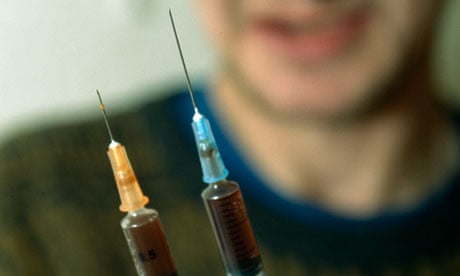It is rarely said, but there are some things to celebrate about how the UK tackles the problems caused by drug use. Since the 1980s, our progressive policy of providing needle exchanges for injecting drug users has kept their HIV rates at among the lowest in the world. More recently, the expansion of treatment for those with drug problems has helped tens of thousands to rebuild their lives. We are also a decade into a steady decline in the numbers of people who use drugs and who develop drug problems.
But this decline in drug use is part of an international trend that may have nothing to do with specific policies in the UK. And although we do some things well, we have become complacent about other parts of drug policy: we are not paying nearly enough attention to how we could do these other things better.
Despite the successes of recent years, there are still approximately 2,000 drug-related deaths in the UK every year. Nearly 400,000 people have serious drug problems and the annual cost to society is estimated to be about £15bn.
Politicians are well aware of these problems. A poll of 150 MPs this year found that 77% thought the UK's drug policies were not effective. Public opinion polling shows similar disquiet. Yet few high-profile politicians have been willing to suggest alternatives. It has generally only been the "formers" – those who have left senior posts in government, civil service or the police – that have argued publicly for a different approach.
Previous leaders, including Margaret Thatcher, followed the evidence and adopted new policies. Other countries, such as Uruguay, Portugal and Switzerland, are now testing different approaches. Yet there has been little indication that current frontline politicians in the UK are ready to grasp the nettle of change.
But there is one reason, above all, why we might now see a change, and that is money. At least £3bn is spent every year in the UK on tackling drug problems. Some of it is well spent and has a strong evidence base, as in drug treatment and recovery services. But much of it is not.
There is little or no evidence to support much of current expenditure on law enforcement and education in schools. We spend billions a year without knowing if it does any good. In boom years this was objectionable; now it is unsustainable.
I have chaired the independent UK Drug Policy Commission for the past six years and on Monday we publish our final report. In it, we set out our conclusions for where the evidence suggests we can improve lives and save money. This includes reforming our 40-year-old drug laws and changing the way the government classifies drugs, although we do not believe the current evidence justifies legalising supply. Above all, policymakers need to take far more account of the independent and reliable evidence available to them than they do; and, to facilitate this, we need a new statutory body responsible for ensuring that this evidence cannot be ignored.
I have had long involvement with drug policy in the UK, including spending 20 years, from 1974, as a member of the government's Advisory Council on the Misuse of Drugs. After that, I was the chair of the Police Foundation's independent inquiry into our drug laws.
Given this experience, one might expect me to be pessimistic about the chances of another report leading to any change of policy. But previous studies that have identified compelling evidence have spurred improvements in drug policy, and now the evidence is increasingly clear that we need a fresh approach.
Later this year, the home affairs committee will publish the results of its own year-long drugs inquiry. If that report indicates that politicians are prepared to take evidence more seriously, and if the government responds positively, it may be a signal that there will eventually be further reasons to celebrate successes in UK drug policy.
